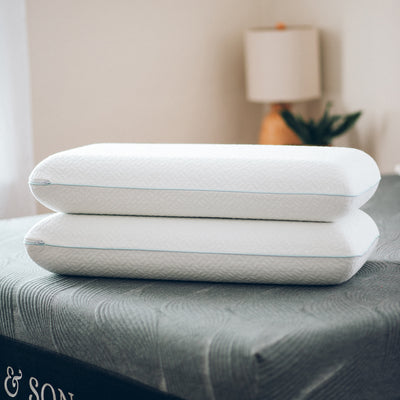It's that time of year again. With the holidays in full swing, that means preparing for parties, get-togethers, and visits from friends and family. Many of us are fortunate enough to experience this time of the year with our loved ones, but some are not. While most people look forward to all the festivities and traditions the holiday season brings, but this cheerful time can be difficult for others for a variety of reasons. Whether you’re someone who can’t get enough of the holidays, or if you’d rather time would just speed by, remember to set aside some alone time to focus on yourself.
You may have heard the saying, "breakfast is the most important meal of the day." Just as eating breakfast is vital for our bodies, so is sleep. Research shows that an adult should sleep between 7 to 8 hours every night. Yet, the majority are sleeping less than this. Many of you may be wondering, “Why does this matter?” You may be thinking that the only negative side effect of not getting enough sleep is walking around like a zombie the next day. But scientists have recently discovered more negative side effects to not sleeping enough. Some of these include, but are not limited to, depression, stress, anxiety, and more.
Depression can impair individuals from participating in daily activities. Not having a healthy sleep routine and getting enough hours of sleep can make depression worse, and even cause depression in those who do not already have it.
Some people are more prone to getting stressed. It’s just the nature of their personality. However, even individuals who are not stressed out easily can become even more stressed due to a lack of sleep. Stress caused by exhaustion can cause problems with the way you deal with stress. Even small issues can turn into larger problems.
Just like depression and stress, sleep and anxiety seem to go hand in hand. People who already suffer from anxiety have trouble sleeping at night. This lack of sleep can worsen their anxiety. On the other hand, those who do not have anxiety can develop anxiety due to lack of sleep.
As you can see, there are more mental health issues due to sleep deprivation than you probably knew. We must take care of our bodies by ensuring that we are getting the recommended amount of sleep every night.
If you or someone you know needs help dealing with mental health and/or sleep problems, reach out to someone you know or one of the many online resources.
- National Suicide Prevention Lifeline: Call 1-800-273-TALK (8255)
- Crisis Text Line: Text “HELLO” to 741741
- Veterans Crisis Line: Call 1-800-273-TALK (8255) and press 1
Reference: Cherry. K, (February 24, 2020). How Does Sleep Affect Mental Health? Verywellmind. Retrieved from: https://www.verywellmind.com/how-sleep-affects-mental-health-4783067
National Institute of Mental Health. (August, 2019). Help for Mental Illnesses. National Institute of Mental Health. Retrieved from: https://www.nimh.nih.gov/health/find-help

|
Sarah is the resident fall marketing intern at Sven & Son. When she isn’t becoming a master of all things sleep-related, she enjoys staying active and traveling. Sarah one day hopes to visit every place on her bucket list, which is a VERY long list! |


































